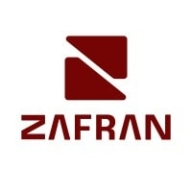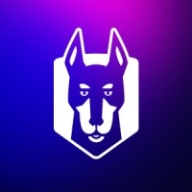


Snyk and SentinelOne Singularity Identity compete in the domain of security solutions for software development and identity protection. Snyk appears to take the lead in developer-centric ease of use and integration, while SentinelOne excels in behavior-based threat detection and identity protection.
Features: Snyk provides seamless integration options, a comprehensive vulnerability database, and efficient developer workflows, allowing developers to identify and fix vulnerabilities quickly. SentinelOne focuses on AI-powered threat detection, offering robust protection against identity exploitation and detailed threat intelligence.
Room for Improvement: Snyk could enhance its security offerings by adding SAST or DAST scanning types and improving IDE integration and notification controls. SentinelOne could refine its endpoint management by permitting individual configurations and providing better web filtering capabilities. Users also suggest making agent updates more user-friendly.
Ease of Deployment and Customer Service: Snyk supports flexible deployment across private and hybrid cloud environments, receiving praise for easy integration and robust customer support. SentinelOne provides strong public cloud deployments but could improve user-friendliness and support responsiveness. Reviews indicate that Snyk's support is notably timely and comprehensive.
Pricing and ROI: Snyk offers a clear licensing model, sometimes seen as expensive, but delivers strong ROI through streamlined vulnerability management. SentinelOne presents competitive features and pricing, though transparency issues surrounding price changes are noted. Its budget-friendliness and comprehensive security coverage contribute positively to its ROI perception.
| Product | Market Share (%) |
|---|---|
| SentinelOne Singularity Identity | 0.7% |
| Snyk | 3.1% |
| Zafran Security | 1.0% |
| Other | 95.2% |



| Company Size | Count |
|---|---|
| Small Business | 4 |
| Midsize Enterprise | 5 |
| Large Enterprise | 13 |
| Company Size | Count |
|---|---|
| Small Business | 20 |
| Midsize Enterprise | 9 |
| Large Enterprise | 21 |
Zafran Security integrates with existing security tools to identify and mitigate vulnerabilities effectively, proving that most critical vulnerabilities are not exploitable, optimizing threat management.
Zafran Security introduces an innovative operating model for managing security threats and vulnerabilities. By leveraging the threat exposure management platform, it pinpoints and prioritizes exploitable vulnerabilities, reducing risk through immediate remediation. This platform enhances your hybrid cloud security by normalizing vulnerability signals and integrating specific IT context data, such as CVE runtime presence and internet asset reachability, into its analysis. No longer reliant on patch windows, Zafran Security allows you to manage risks actively.
What are the key features of Zafran Security?
What benefits can users expect from Zafran Security?
In industries where security is paramount, such as finance and healthcare, Zafran Security provides invaluable protection by ensuring that only exploitable vulnerabilities are addressed. It allows entities to maintain robust security measures while allocating resources efficiently, fitting seamlessly into existing security strategies.
Singularity Identity, a component of the Singularity platform, provides threat detection & response (ITDR) capabilities to defend Active Directory and domain-joined endpoints in real-time from adversaries aiming to gain persistent, elevated privilege and move covertly. Singularity Identity provides actionable, high-fidelity insight as attacks emerge from managed and unmanaged devices. It detects identity misuse and reconnaissance activity happening within endpoint processes targeting critical domain servers, service accounts, local credentials, local data, network data, and cloud data. On-agent cloaking and deception techniques slow the adversary down while providing situational awareness and halting adversarial attempts at lateral movement. Singularity Identity helps you detect and respond to identity-based attacks, providing early warning while misdirecting them away from production assets.
Singularity Identity’s primary use case is to protect credential data and disrupt identity-based attacks. The most valuable function of Singularity Identity is its ability to misdirect attackers by providing deceptive data to identity-based recon attacks. Additionally, it can hide and deny access to locally stored credentials or identity data on Active Directory domain controllers.
Singularity Identity also provides rapid detection and respond to identity attacks, capturing attack activity and feeding it directly to the Singularity platform’s Security DataLake for enterprise-wide analysis and response.
By implementing Singularity Identity, organizations benefit from enhanced security, reduced credential-related risks, and improved user productivity. It detects and responds to identity-based attacks, ensuring only authorized individuals can access critical identity data. With its cloaking capabilities to hide identity stored locally on endpoints or in the identity infrastructure and it’s ability to provide decoy results to identity-based attacks, organizations can effectively secure their sensitive or privileged identities, resulting in improved overall identity security.
Snyk excels in integrating security within the development lifecycle, providing teams with an AI Trust Platform that combines speed with security efficiency, ensuring robust AI application development.
Snyk empowers developers with AI-ready engines offering broad coverage, accuracy, and speed essential for modern development. With AI-powered visibility and security, Snyk allows proactive threat prevention and swift threat remediation. The platform supports shifts toward LLM engineering and AI code analysis, enhancing security and development productivity. Snyk collaborates with GenAI coding assistants for improved productivity and AI application threat management. Platform extensibility supports evolving standards with API access and native integrations, ensuring comprehensive and seamless security embedding in development tools.
What are Snyk's standout features?Industries leverage Snyk for security in CI/CD pipelines by automating checks for dependency vulnerabilities and managing open-source licenses. Its Docker and Kubernetes scanning capabilities enhance container security, supporting a proactive security approach. Integrations with platforms like GitHub and Azure DevOps optimize implementation across diverse software environments.
We monitor all Vulnerability Management reviews to prevent fraudulent reviews and keep review quality high. We do not post reviews by company employees or direct competitors. We validate each review for authenticity via cross-reference with LinkedIn, and personal follow-up with the reviewer when necessary.